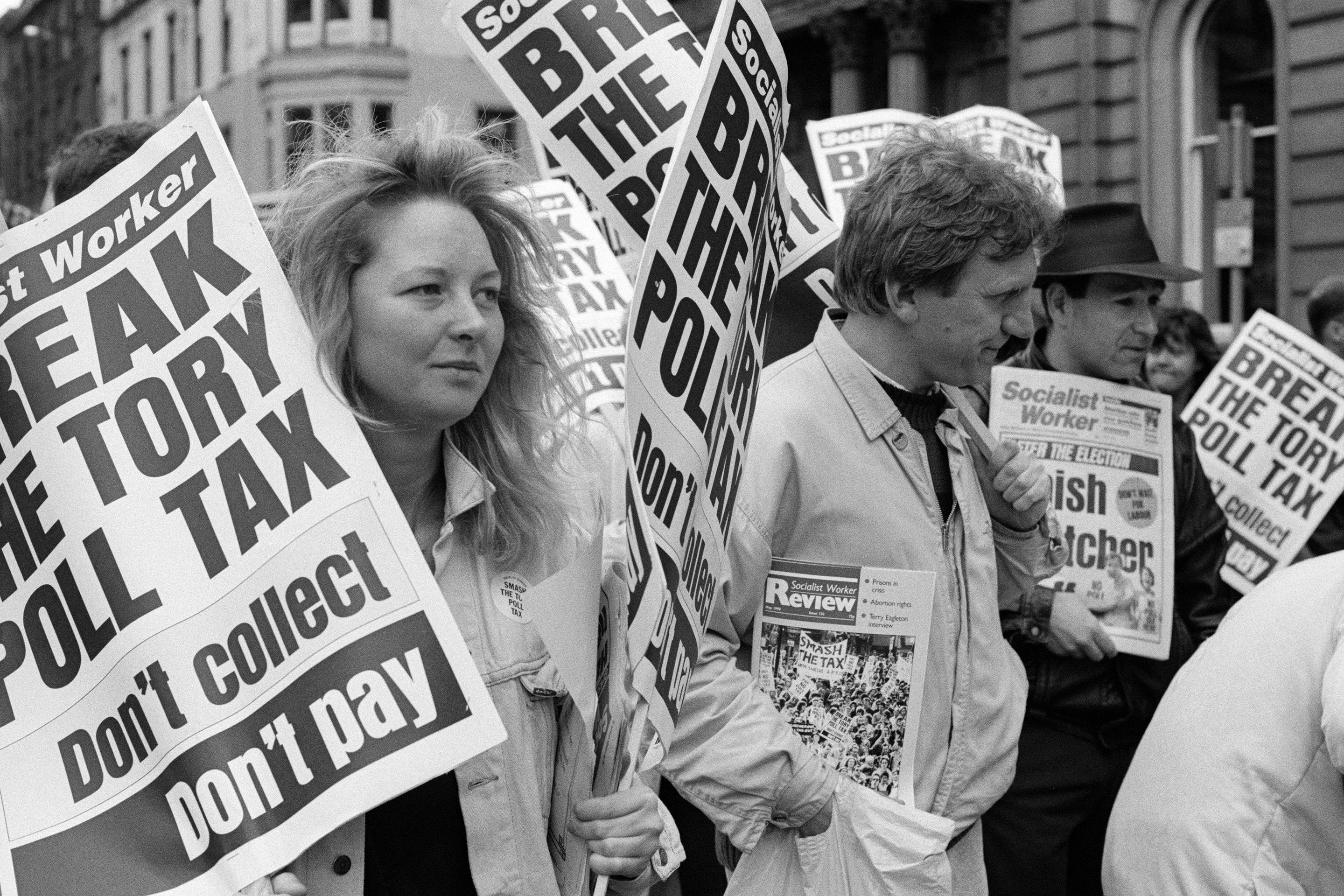Murray Pittock: Advocates for the Union have offered little beyond nostalgia and negativity
Of all the people you expect to be name-checked in the introduction to a book about Scottish history, Boris Johnson would not be an obvious candidate.
But in his latest work, Scotland: The Global History, Professor Murray Pittock acknowledges the prime minister as someone he studied with and learned a “great deal” from.
Pittock, who expressed his support for Scottish independence in the run-up to the 2014 referendum, has written a timely and fascinating book which begins with the union of crowns under James VI and I in 1603 and ends in modern-day Scotland.
His thesis is that Scotland continued to punch above its weight internationally, projecting itself outwards even after it ceased to be an independent nation with the Act of Union in 1707, but that its identity was slowly subsumed within the UK in the latter part of the twentieth century.
So does his former university colleague, the now prime minister, have a big interest in Scotland and its history?
“No, I think he has absolutely no interest in it,” says Pittock.
At a student at Oxford in the 1980s, Pittock was a debating champion alongside the future Conservative leader.
“He was exactly the same as he is now,” Pittock says. “He was affable and very pleasant – as long as he got his own way. He was completely unshockable and also he had sufficient confidence that his extremely low opinions of other people could be voiced in the right circles very readily.”
I spoke to Pittock, now based at Glasgow University, as First Minister Nicola Sturgeon announced to parliament her plan to stage another independence referendum next year, providing she gets the go-ahead from either the UK Government or the Supreme Court.
But for a country so consumed with its future, many of us know very little about Scotland’s past. I ask Pittock why there appears to be so few popular histories of Scotland and whether that reflects the country’s position within a larger state, the UK.
“There are quite a few now,” he says, “but when Michael Lynch published Scotland: A New History in 1991, there hadn’t actually been a history of Scotland of any kind written by anybody that was more than a picture book account for more than 30 years.
“Histories of Scotland are increasing in number, but that reflects a changing political environment. For a significant period between the Second World War and the 1990s, there were hardly any.”
Pittock says Scotland had “started to disappear” within the post-war understanding of the Union, a situation which didn’t change until relatively recently (historically speaking).
“In a way, the loss of Scottish history is linked paradoxically to the loss of the British empire. The British empire featured very heavily in leaving certificate exam papers in Scotland – more than south of the border until the 1950s and was a core part of the relational history of Scotland that wasn’t the case south of the border where the empire was something more passively experienced as jingoism than actively experienced as relationship.”

Pittock has previously written books on Culloden, the Jacobites and Rabbie Burns, so what made him want to tackle a wide-ranging national history?
“A lot of what’s said about Scotland focuses really heavily on the country and what’s going on inside it, pushing out what’s going on internationally,” he says.
“But actually, Scotland and Scotland’s experience has been central to a very large part of what’s gone on in the world for centuries, particularly during the British empire, but certainly not limited to that. So, (the book) is about Scotland’s influence on the world and the world’s influence on Scotland…”
Towards the end of his book, Pittock concedes that many independence supporters have an “overly rosy” view of what the early years after a Yes vote would be like but says advocates for the Union have offered little “beyond nostalgia and negativity”.
“Whereas their predecessors were frequently Scottish patriots, today the denigration of Scotland and everything Scottish is the default language of those who stress – but thus fail to demonstrate – its importance to the United Kingdom,” he writes in the book’s conclusion.
So, does he think a constructive case can be made for the Union beyond what came to be known as Project Fear in 2014?
“The problem is that we haven’t had one Union, we’ve had several,” he says. “The Union that there was the strongest case for was the one from when Scotland gained significant benefits in terms of access to overseas markets and the ability to organize itself on a national basis worldwide.
“It’s this (current) Union, which has always carried with it the threat of partial or complete erasure of Scotland, which is very difficult and has driven people away. I don’t think there was a lot of opposition to the Union traditionally in Scotland when I was young.
“But the direction of the Union has been towards the idea that the UK is a completely unitary state and society, and that has not been the way the Union was historically understood. And Scotland is the strongest historical independent component of that union and that’s why we are where we are.”
Pittock says the teaching of Scottish history in schools is getting better, but still not where it should be. He points to a poor understanding of seismic episodes such as the Clearances, which helped shape the way Scotland is today.
“You still get students coming to university doing Scottish history or literature or whatever and they’re encountering things for the first time,” he says. “They’re discovering, in a sense, part of who they are when they’re adults and that’s really quite strange. You shouldn’t start to discover your culture when you’re a grown-up.
“We should be ensuring that people get a good chunk of Scottish history and Scottish writing in the 5-14 stage. There’s a lot of good teaching out there but the issue is that there’s a lot of discretion – it’s hard to see what goes on. I’m not criticising teachers.”
I ask Pittock if someone who knows about the history of Scotland is more likely to vote Yes in an independence referendum.
“I think one of the reasons of resisting Scottish history by Unionists is precisely due to their perception that’s the case. That cannot be the case, but on the other hand quite a lot of unreconstructed, negative, narrow, chauvinist nationalist opinion is based on a poor understanding of Scottish history. There’s an argument that if you educate people properly, they won’t think they’ve been victims of a conspiracy.
“It’s become very much like the US culture wars, the idea that all Unionists must oppose Scottish history and culture because it will lead to independence – it’s really not very healthy at all.
“There have been injustices in Scottish history – there are injustices in all countries’ histories – some of them have been perpetrated by Scots. History as conspiracy theory isn’t helpful.
“Scotland has a distinct national history and understanding it properly will benefit everybody.”
Much has been made of the times we’re currently living through and what future historians will make of them.
Pittock says Brexit “has the look of a defining moment” much like the 1956 Suez crisis. However, unlike Suez, Brexit is “not easily reversible”. Indeed, the book is partly dedicated to former Brexit minister Michael Russell, although Pittock jokes that he didn’t take any advice from the former SNP MSP when writing it.

“I don’t think the verdict of history can possibly be positive,” he says. “The longer (the impact of Brexit) endures, the more it will drive division in the United Kingdom because it’s simply an act of economic self-harm…”
Pittock says that far from being specious, comparisons between now and earlier periods of history, namely the 1930s, have merit due to Russia’s invasion of Ukraine and the growing threat to democracy across the world.
“The trouble with the famous book by (Francis) Fukuyama, The End of History, was that after the fall of the Berlin Wall, the people who remembered history included the Chinese and the Russians, and the people who forgot it were the United States and Europe.
“That’s absolutely what’s happened. People have forgotten history, and history is actually a really good guide to the present…”
Holyrood Newsletters
Holyrood provides comprehensive coverage of Scottish politics, offering award-winning reporting and analysis: Subscribe